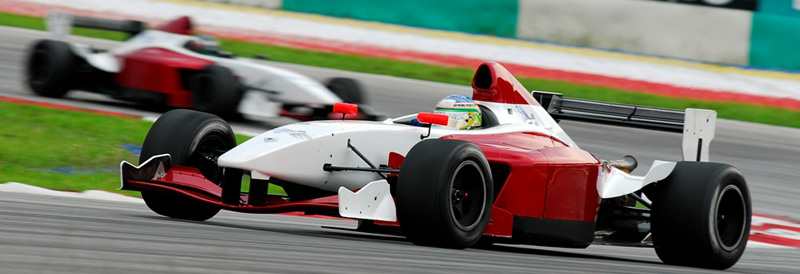MAKING CONTACT
Potential sponsors can either arrange sponsorship directly with teams and drivers, etc., or they can use specialist marketing agents to act on their behalf. Sponsorship opportunities are generally not advertised!
GETTING HELP
Making direct approaches to teams, drivers, sanctioning bodies, and promoters can be time-consuming and requires experience in sponsorship, as well as knowledge of the racing industry. Many potential sponsors, therefore, decide to utilize specialist Sponsorship Agents and Marketing Agencies. Sponsorship Agents are sometimes contracted to a particular team or driver, and many work independently, targeting individual sponsors and then placing the sponsorship with the most appropriate team, driver, or series, etc. Agents traditionally work on a commission basis, normally paid by the team rather than the sponsor. Marketing Agencies that specialize in motorsport sponsorship are quite rare. Even though there are many good marketing agencies involved in racing, very few will actually look for sponsorship. Most agencies focus on marketing support activities such as PR, hospitality, etc.
BENEFITS OF USING SPECIALIST HELP
The benefits of using a specialist marketing resource to arrange sponsorship are clear. The agent or agency will have an appropriate level of experience of working within racing and will have a good understanding of the opportunities available. An agent will evaluate these opportunities relative to a sponsor’s marketing objectives and then act as an intermediary between the sponsor and the team or driver, etc. The goal of the agent is to ensure that both sides satisfy their respective marketing objectives. The agent is often also available to undertake all of the marketing activities that are required to support the sponsorship.

GOING DIRECT
Many sponsors prefer a direct approach when formulating sponsorship programs, especially when they have experienced full-time personnel.
TALKING TO TEAMS
Most teams have in-house marketing departments, and the larger teams tend to have either a person or a department dedicated to finding new sponsors. In smaller teams, it is often the team owner or team manager who handles new sponsorship. Teams should be only too happy to let a potential sponsor know what opportunities they have available. Teams will probably send the potential sponsor some general information on the team and the series, and then try and set up a meeting where each can discuss the relative objectives. A potential sponsor could then expect to be invited to the team’s facility and maybe also to a race to get a feel for their organization. Having gone through this process and only when the team fully understands the objectives, the team should send out a proposal for consideration.
TALKING TO DRIVERS
If a sponsor is considering sponsoring a driver, it is not always that easy to talk to them directly about sponsorship opportunities. The best way to contact a driver tends to be through the team, and so a sponsor will need to ask the team to put them in touch with the driver. Some drivers do have their own offices, and many have managers, sponsorship consultants, marketing, and PR personnel working on their behalf. However, unless a sponsor specifically has their contact details, it’s probably best to get them through the team. Once a sponsor is in touch with the driver or their representative, the process will be very similar to speaking with a team. Many drivers conduct their sponsorship negotiations with the full approval of their teams, and so a sponsor shouldn’t be surprised if they find themselves dealing with the driver directly.
SANCTIONING BODIES
If a sponsor is considering an involvement with a Series, they will need to speak with the sanctioning body. Details on sanctioning bodies can be found on the web or in specialist racing publications. Most have comprehensive marketing departments and generally, there will be a person responsible for new sponsorship (e.g. Marketing Director, VP Sponsorship, etc.). Opportunities with sanctioning bodies are probably more limited than with teams, and so they are likely to have several standard packages available that might match individual objectives.
PROMOTERS
A similar situation exists if for sponsoring an individual race or event. Contact needs to be made with the promoter of the race, and again, the promoter is likely to have several standard packages that may be appropriate, depending on whether a sponsor wants exposure, hospitality, promotional rights, etc. The best way to contact a promoter is either through the sanctioning body or through the track where the event is held. Sometimes the track and the promoter are the same, and sometimes they are not.



